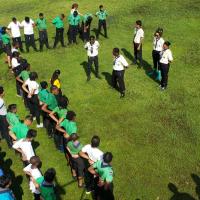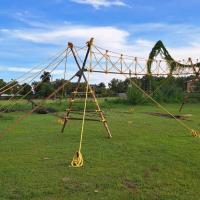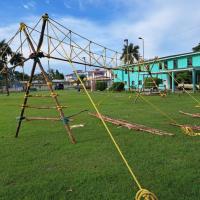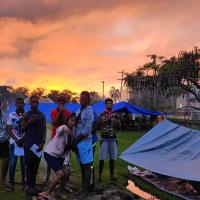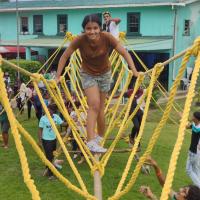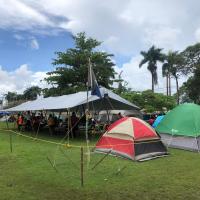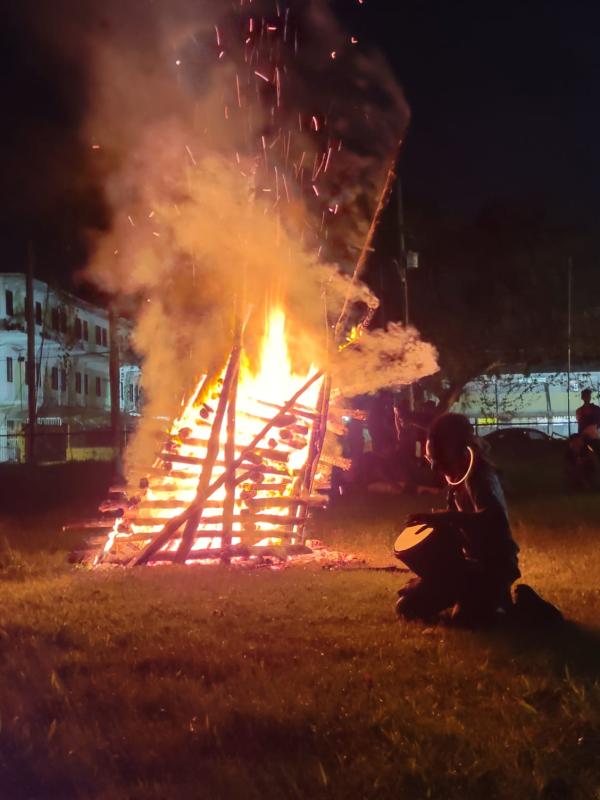
The Adventures of Saints' Scouts
Lord Robert Stephenson Smyth Baden Powell urged us to “leave the world better than we found it”. Scouting began in 1907 and was brought to Guyana in 1909 by Sergeant Major George Manley as a non-formal educational movement that provides adult leadership designed to be fun and stimulating.
At meetings, scouts participate in various activities such as: Fire lighting, Backwoodsman skills, Pioneering, Semaphore, Archery, First Aid, Impromptu speaking, physical training, games, etc. Shelters, tables, towers and bridges are built to display the skills scouts have developed overtime. Troop 25 is well known for its large scale ‘Rope engineering’ or pioneering projects. Scouts are sometimes tasked with constructing emergency stretchers to transport a patient. Scouts are given the opportunity to learn many different things including: languages, team building, survival skills, and problem solving techniques. Scouts read essays and passages and share their perspective and experiences. We develop plans, execute and evaluate activities every cycle.
Did you know that scouts can cook a meal without using kitchen utensils? Backwoodsman is practiced and used at camps, expeditions, competitions or training exercises. At camps and expeditions, scouts are tasked with setting up a fire place of their choice and must cook meals over a bed of hot coals. Backwoodsman is a necessary skill for scouts to have because it guarantees us hot, cooked meals no matter our surroundings or situation. Fire is not only used for food, light and warmth but also for keeping insects and wild animals away. At camps, a campfire is constructed for everyone to come together and celebrate as one, displaying our many different talents.
Essentially, scouting at Saints' is about shaping an individual into a better version of themself. Communication and teamwork are major reasons why these activities are successful. Troop 25 showed great resilience and commitment by switching to virtual meetings in the midst of the COVID-19 pandemic. They were unable to meet in person but committed and adaptable enough to evolve their programme to meet the goals and objectives of the movement. If you are a young person, who loves the outdoor and have some unique talent you would like to develop, come scout with the Saints’ scout family!
Location
Topics
Youth Programme
Communications and Scouting Profile
Culture and heritage
SDGS
Initiatives
Peace and Community Engagement
